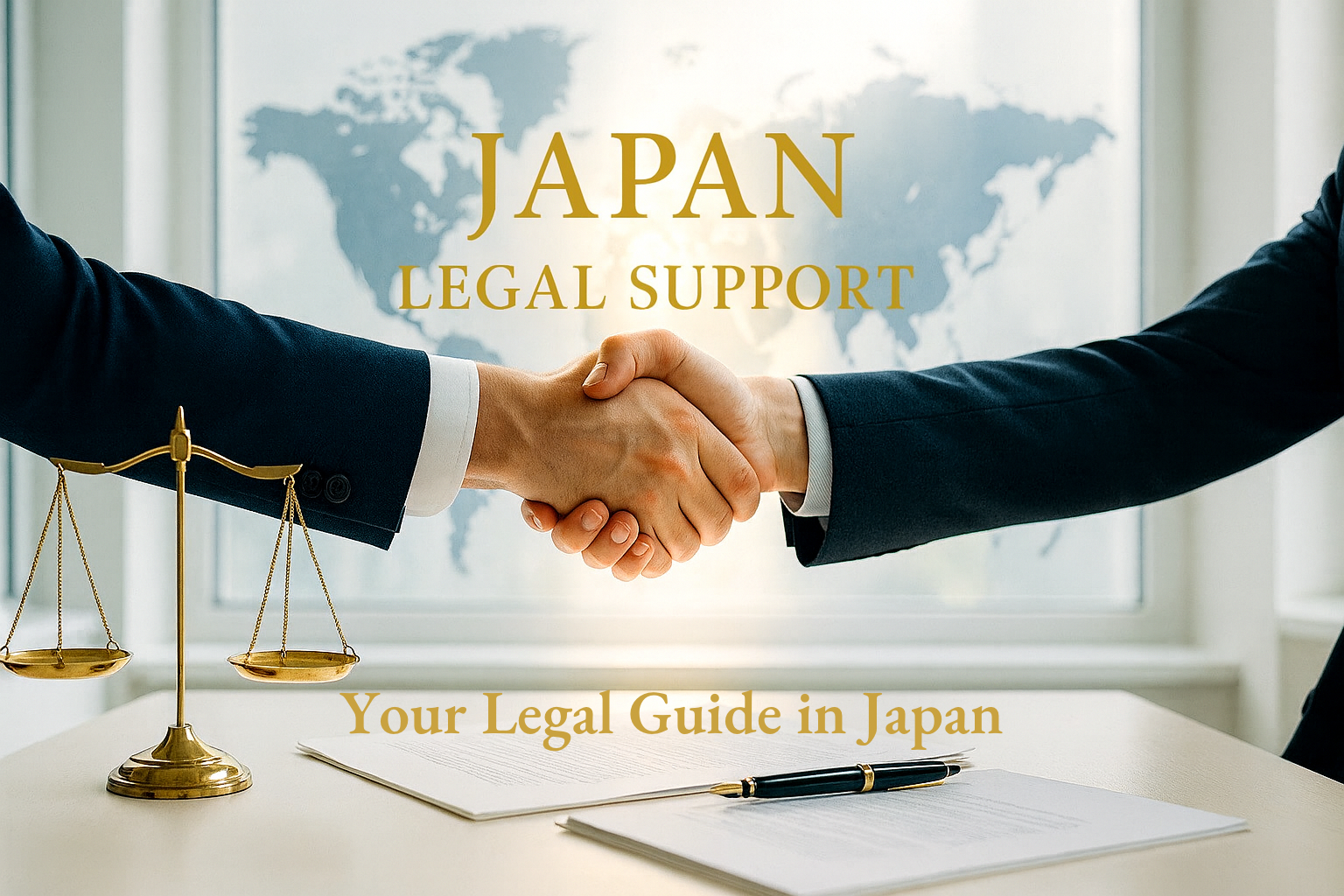Introduction
Starting life in Japan can feel complex — but understanding your visa and residency rules makes everything smoother.
This guide gives you the big picture of Japan’s immigration system and helps you find which category fits your situation.
You’ll learn:
- The real difference between a Visa and a Status of Residence
- How to know which status you need
- What happens before and after you arrive
- Key rules and mistakes to avoid
Visa vs Status of Residence: What’s the Difference?
In Japan, Visa and Status of Residence are not the same — but many newcomers assume they are.
Think of it this way:
- Visa = Permission to enter Japan
- Status of Residence = Permission to stay and what you can legally do
Where you’ll find them
| Comparison | Visa | Status of Residence |
|---|---|---|
| Purpose | Entering Japan | Living, working, studying |
| Location | Passport | Residence Card |
| Issued by | Embassy / Consulate | Immigration office in Japan |
| When needed | Before entry | During your stay |
Once you enter Japan, your Status of Residence becomes the main rulebook for daily life.
Example 1 — Working as a Student
“I have a visa, so of course I can work!”
Actually, not always.
A Student status doesn’t include work permission by default.
You must apply for a separate work permit, and there are limits on hours and job types.
Example 2 — Changing jobs
“My visa hasn’t expired, so I can freely change jobs!”
Not necessarily.
If your job type changes (e.g., teaching → IT), your Status may no longer match your activity.
You must apply to Change Status before starting the new role.
💡 The immigration office checks: “Do your actual activities match your Status of Residence?”
The short version
- Get a Visa from an embassy or consulate
- Arrive → the immigration office checks your purpose
- You are granted a Status of Residence and receive a Residence Card
- From then on → follow your Status rules
Which Status Do You Need? (Quick Matcher)
Choose the line that matches your real situation in Japan.
- You have a job offer in Japan → Work status
Examples: Engineer / Specialist in Humanities / International Services, Skilled Labor, Intra-company Transferee, Highly Skilled Professional.
💡 Your degree or experience must match the job type. - You want to study full-time → Student status
For language schools, colleges, universities.
💡 Part-time work requires permission. - You’re married to a Japanese national or Permanent Resident → Spouse or Child status
Flexible for work, but the immigration office checks proof of relationship and cohabitation. - You’re joining family in Japan as a dependent → Dependent status
Limited work options (permission required). Must show stable financial support. - You’re working in skilled or practical jobs → Specified Skilled Worker (SSW)
Requires skill tests and employer sponsorship. - You’ve lived in Japan long term and want stability → Permanent Resident
Few restrictions but requires solid tax and insurance history. - Other special purposes → Cultural Activities, Designated Activities, Business Manager, etc.
💡 Always start from your actual activity — it decides your category.
What You Do Next (Depends on Your Situation)
A) You are outside Japan
- Decide your correct Status of Residence
- Sponsor in Japan applies for a Certificate of Eligibility (CoE)
- After CoE → get a Visa from a Japanese embassy or consulate
- Enter Japan → the immigration office grants your Status and issues a Residence Card
- Within 14 days → register your Resident Record (住民票 / Juminhyo) at your city or ward office
- Then set up daily life (insurance, bank, phone, etc.)
💡 CoE processing often takes 1–3 months, so plan early.
B) You are already in Japan
Apply directly to your immigration office.
Typical cases:
- Student → Work
- Worker → Different category
- Spouse → Work
- Renewal (Extension)
Steps:
- Check your current Status of Residence
- Prepare documents showing your new or continued activity
- Submit a Change of Status or Extension (Renewal) application
- Wait for approval before starting new activities
💡 Renewal applications are accepted about 3 months before expiry.
Reminders
- Don’t start new work before approval
- Keep records (contracts, income, enrollment)
- The immigration office will not remind you of deadlines
Important Rules You Must Follow
- Carry your Residence Card at all times if age 16+
- Replace it within 14 days if lost or damaged
- Report address changes to your city/ward office within 14 days
- Notify your immigration office of job, school, or family changes
- Renew early — around 3 months before expiry
Common Mistakes (to Avoid)
- Thinking “work visa” means all jobs are OK
- Working part-time without permission under Student status
- Forgetting to update your address
- Submitting renewals too late
- Starting a new job before your new Status is approved
- Missing tax or health insurance payments (checked at renewal)
💡 Keep one folder with:
Residence Card copy / My Number Notification Card / Tax & insurance records.
It’ll help with renewals and future Permanent Residence applications.
Mini-Glossary of Immigration Terms
| Term | Meaning |
|---|
| Visa | Permission to enter Japan, issued by an embassy or consulate. |
| Status of Residence | Category defining what you can do and how long you can stay. |
| Certificate of Eligibility (CoE) | Document issued in Japan proving you meet requirements before applying for a visa. |
| Residence Card | ID card issued upon entry; shows your Status and period of stay. |
| Change of Status | Application when your activity (e.g., job or study) changes. |
| Extension (Renewal) | Application to continue your current activities before expiry. |
| Permission to Engage in Other Activities | Approval needed to work beyond your main status (e.g., part-time work for students). |
Where to Go (Quick Reference)
| Procedure | Office |
|---|---|
| Visa or Status applications / renewals | Immigration office |
| Address registration / changes | City or ward office |
| National Health Insurance / Pension | City or ward office |
FAQ
Q1. Can I work remotely for a foreign company while in Japan on a Temporary Visitor status?
→ Generally no. Temporary Visitor is for tourism or short-term visits only. Paid work, even remote, requires an appropriate Status of Residence.
Q2. Can I freelance while on a Student or Dependent status?
→ Not freely. You must apply for Permission to Engage in Other Activities, and the work must not interfere with study or family support.
Q3. Can I change employers within the same work status?
→ Yes, if your new job duties still fit your current status (e.g., same “Engineer / Specialist in Humanities / International Services” field).
If duties change significantly, you may need a Change of Status.
Conclusion
Understanding Japan’s visa and residency system saves you stress later.
Your Status of Residence defines what you can do, how long you can stay, and what you must report.
If you follow the rules, keep your paperwork organized, and renew early,
living legally in Japan is not difficult.
👉 Related: How to Register Your Address in Japan: A Complete Guide
👉 Related: How to Get a Job in Japan: Visa & Hiring Guide
Note: This article is written for foreigners living in Japan or planning to move to Japan. Conditions and requirements may vary depending on individual circumstances.




